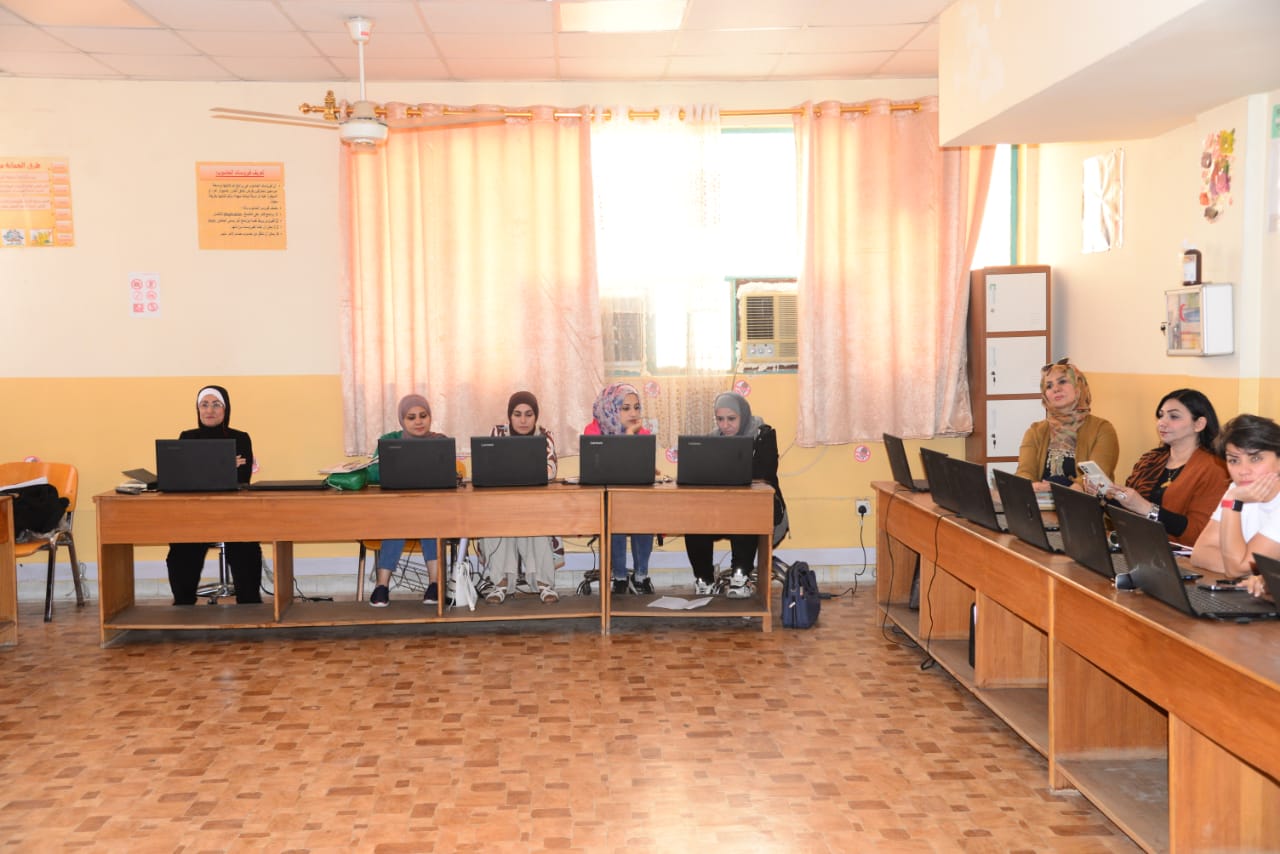The College of Physical Education and Sports Sciences for Girls University of Baghdad concluded the activities of the training course tagged (preparation and design of digital educational content), which was organized by the official of the e-learning unit, Prof. Dr. Lisa Rustom Yaqoub, in cooperation and coordination with the teacher from the Ibn Sina Center for e-learning at the University of Baghdad, Prof. Dr. . Namir Ahmed Fouad, on Wednesdays and Thursdays, and this was the third and last week, in the graduate studies laboratory in the college.
Dr. Namir delivered the course’s axes, indicating its objectives represented in introducing the participating trainees to the characteristics and principles of digital educational content, designing a scenario for an integrated lecture according to digital standards, identifying the relevant technological tools for preparing resources and preparing learning activities and assessments, evaluating achievements according to the reversed classroom approach.
He referred to how to develop various teaching and educational practices, represented by traditional, supported and modern education, enhanced by technologies, and the flipped and virtual classroom from a distance.
He also clarified the concept of the flipped classroom as an educational method or style that relies on a large number of strategies, including distinct learning, self-learning, active learning, project learning, e-learning, problem-based learning, and multimedia learning.
He noted the most important tools of the second generation of the Internet used in the educational process, such as tools for saving educational content such as (One drive Outlook, Files Microsoft Teams, Google Drive, Classroom, Yahoo Files, Gmail Tags), in addition to tools for producing visual scientific content such as (Biteable, Power Point, Nearpod, Canva, E-maze, Visme), as well as tools for designing a questionnaire about educational content such as (Google Form, Microsoft Form, Polly, Type Form), as well as tools for producing interactive mind maps such as (Canva, Mindmeister, Mindomo), In addition to the interaction tools inside and outside the classroom such as (Padlet, Kahoot, White board, Life meeting/Chanel Jamboard).
The teaching section of the Ibn Sina Center includes the types of assessment, including the tribal assessment, the formative structural assessment, the diagnostic assessment, and the final assessment.
